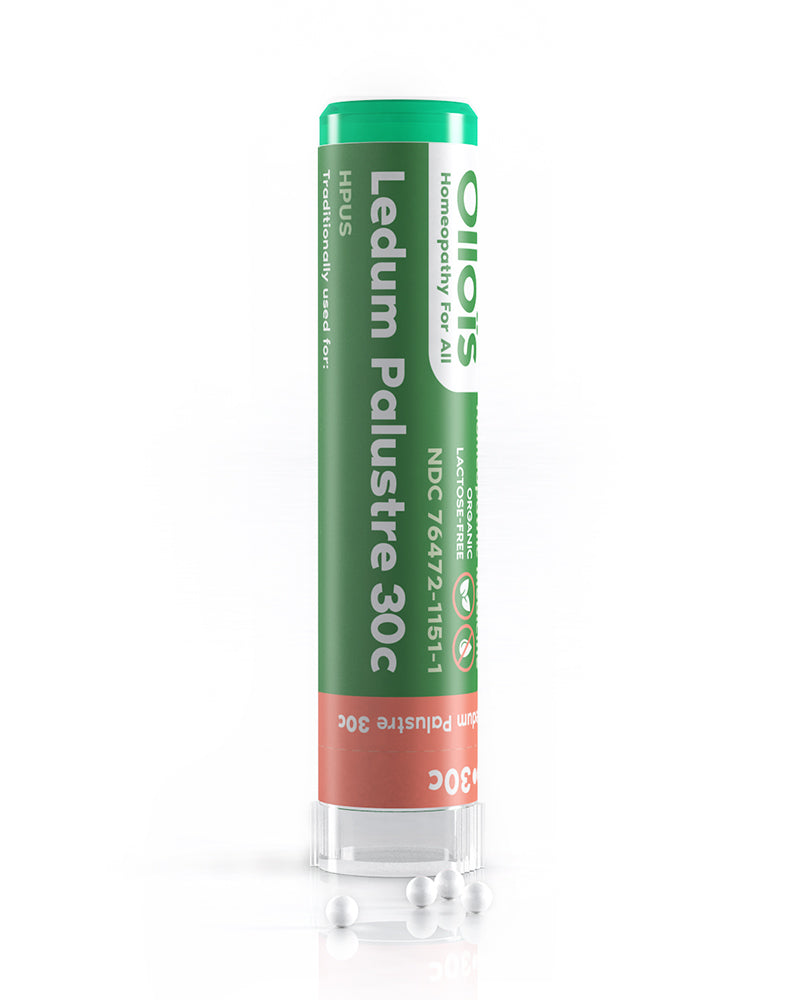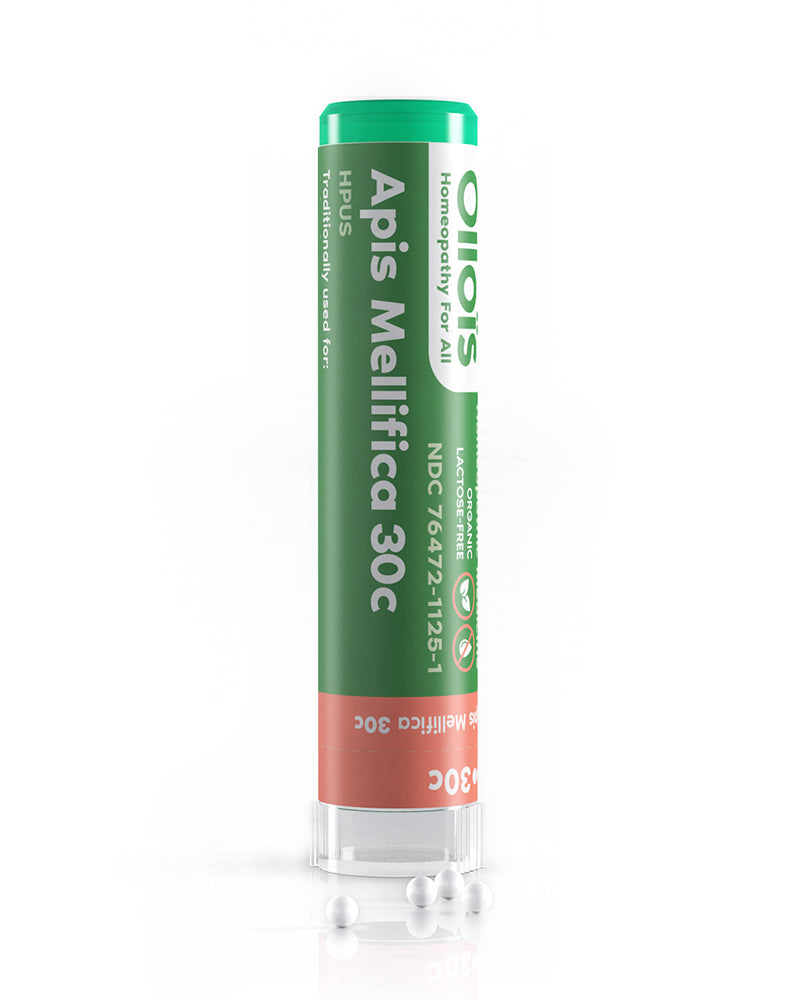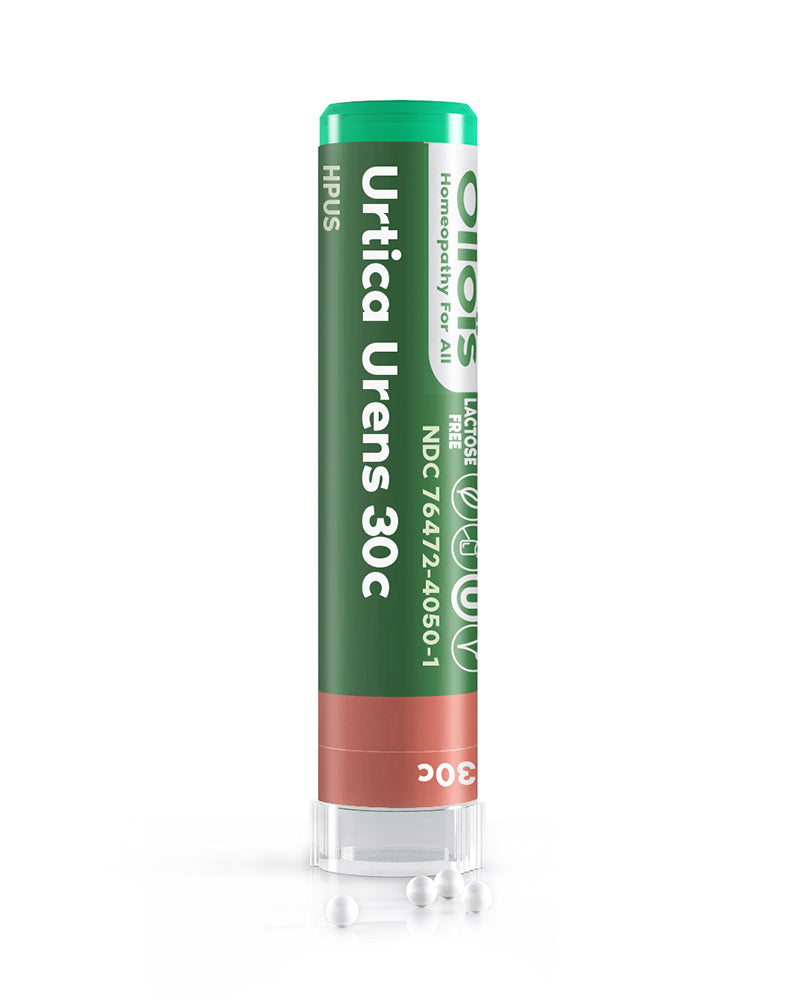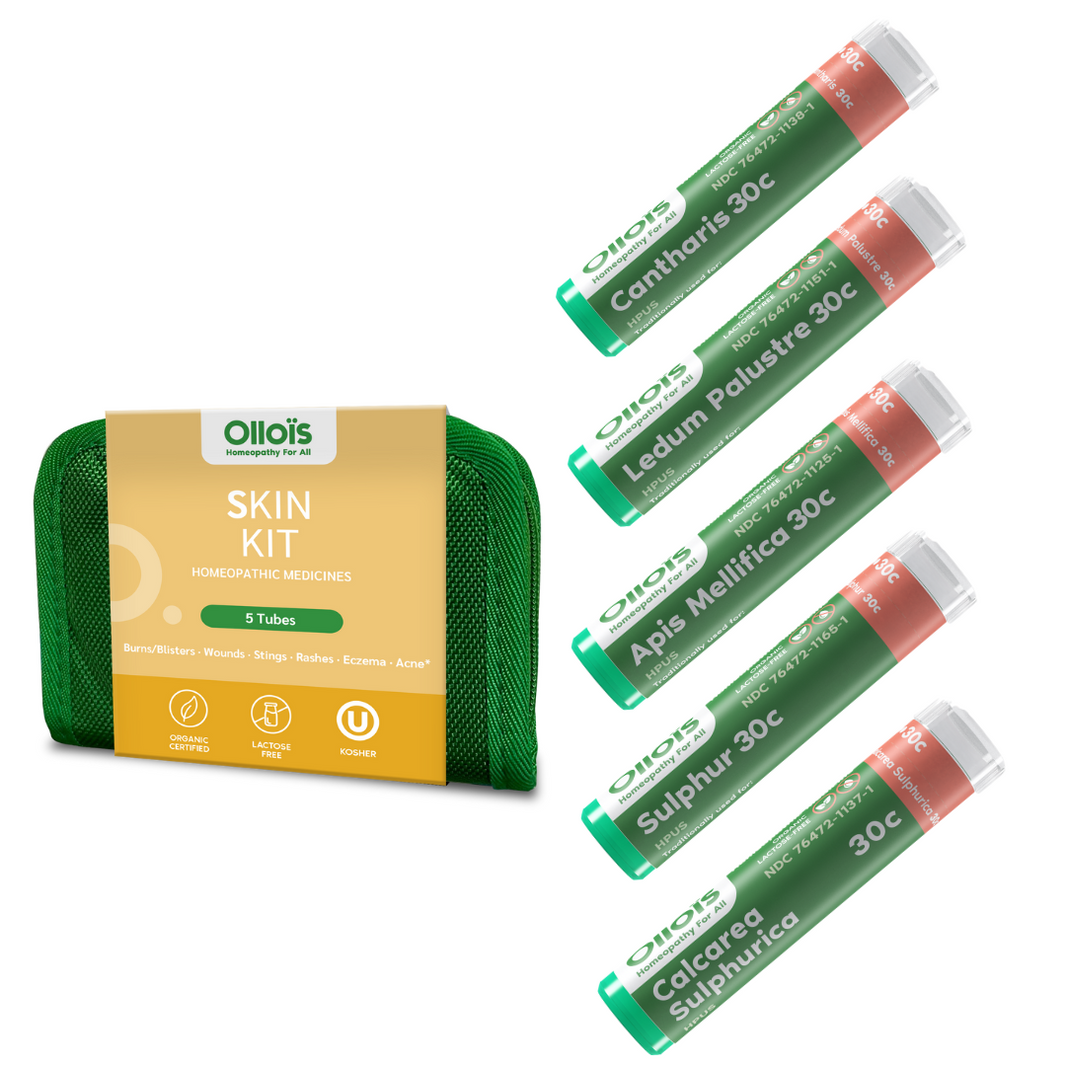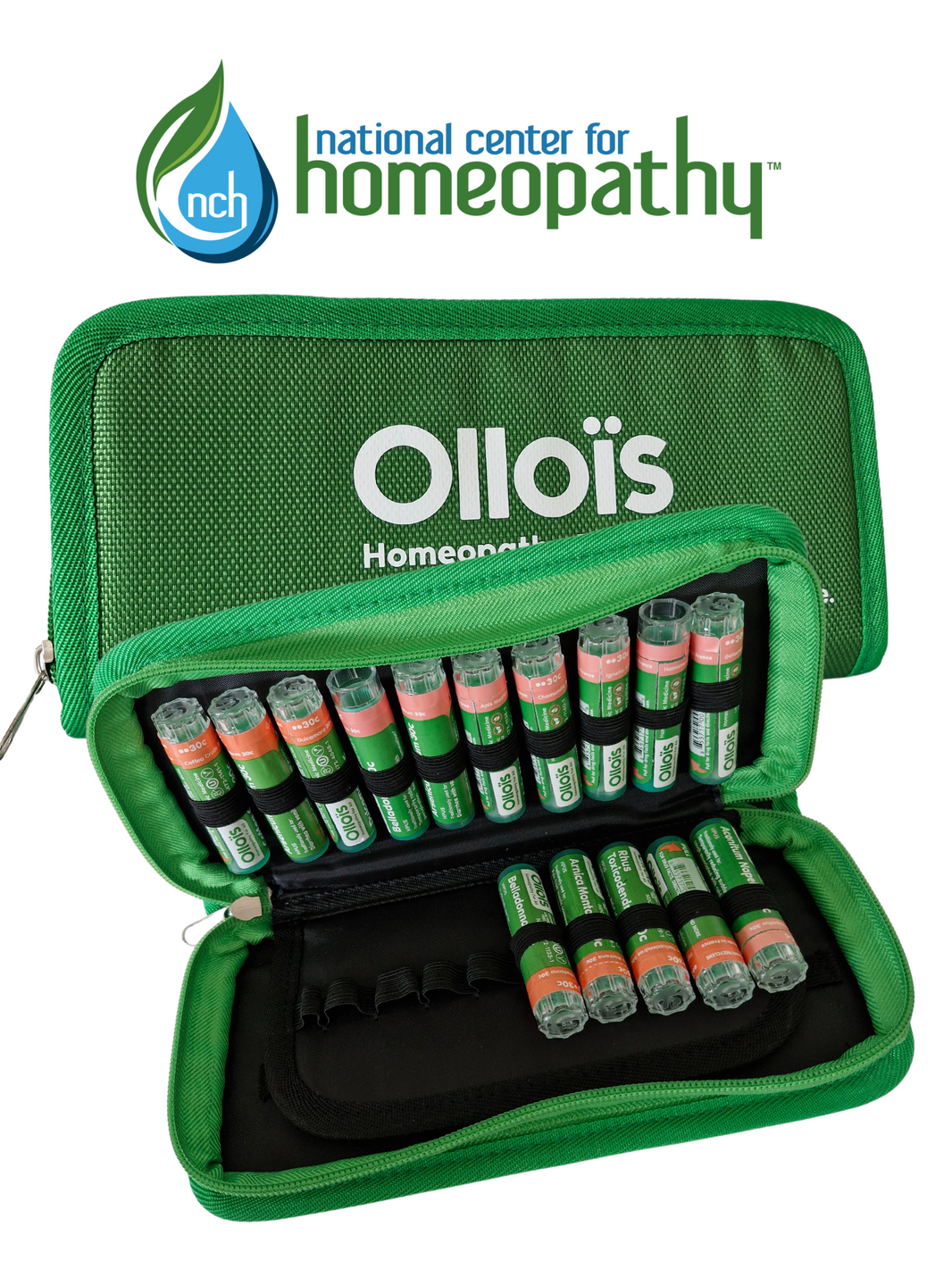Collection: Insect Bites
Ledum Palustre
Apis Mellifica
Paola Brown & Olloïs: Evie Kit
Urtica Urens
JoyWell Kit
Homeopathic Skin Kit
NCH First Aid Kit
There’s nothing like a nice warm night in the summer. Going for walks along woodland trails, spending evenings out on the deck, or sitting around a campfire are all outdoor activities we enjoy when the weather warms up. But, especially in the evenings, we have to share the great outdoors with all sorts of insects – many of the biting and blood-sucking variety. And for those who spend some of their summers on campgrounds or in cottage country, the bugs can be quite intense in remote, wooded areas.
FAQ
What is Homeopathy?
Homeopathy is a medical practice based upon the body's ability to heal itself, and the principle that "like cures like" or the Law of Similars: that is, if a natural substance causes a symptom in a healthy person, a very small amount of the same substance may help relieve symptoms of the illness. Homeopathic medicines enhance the body's normal healing and self-regulatory process.
How do I take homeopathic medicines?
Homeopathic medicated pellets contain only a little of an active ingredient for treatment of disease. These are known as highly diluted or "potentiated" substances. Homeopathic medicines should be placed under the tongue of adults and children or in the cheek of an infant, where they will dissolve. It is preferable to take homeopathic medicines apart from meals. The dosage is not related to the weight and age of the patient. In general, dissolve 5 pellets 3 times a day until symptoms are relieved or as directed by your health Care Professional.
Is there evidence that Homeopathy works?
There are literally hundreds of high quality, published basic sciences, pre-clinical and clinical studies showing that homeopathy works. These studies have been published in respected journals like Lancet, Pediatrics, Rheumatology, and Annals of Internal Medicine, among others.
A great source of high quality research in homeopathy at an
international level is the Homeopathic Research Institute in the U.K. headed by physicist, Dr Alexander Tournier. Click below to learn more about their studies and rigorous methods.
Is Homeopathy regulated?
The U.S. Congress passed a law in 1938 declaring that homeopathic remedies are to be regulated by the U.S. Food and Drug Administration (FDA) in the same manner as nonprescription, over the counter (OTC) drugs.
Is Homeopathy new?
The Law of Similars has been known since at least the time of Hippocrates (ca. 400 B.C.), but it was doctor and chemist Samuel Hahnemann who fully stated the ideas of homeopathy in the early 1800's in Germany. He discovered the truth of the Law of Similars by testing small doses of medicine on himself. Although there is wider acceptance of homeopathy in countries such as France, Germany, Mexico, Argentina, India and Great Britain, we have seen a greater interest in homeopathic medicine in the USA recently. In fact, the family doctor to England's Queen Elizabeth is a homeopathic physician.
What is the difference between the dilutions?
30C dilutions are traditionally used in Homeopathy to address general and chronic symptoms.
200CK dilutions are usually recommended by healthcare practitioners when there is an emotional component associated with physical symptoms.
Which base ingredient do you use for your pellets?
Our pellets are made from Organic Beet Sucrose exclusively grown in Europe. We then impregnate the pellets with the homeopathic dilution of the remedy.
How to open our tubes?
Are Olloïs remedies HAS/FSA eligible?
Yes, Olloïs homeopathic remedies are eligible.
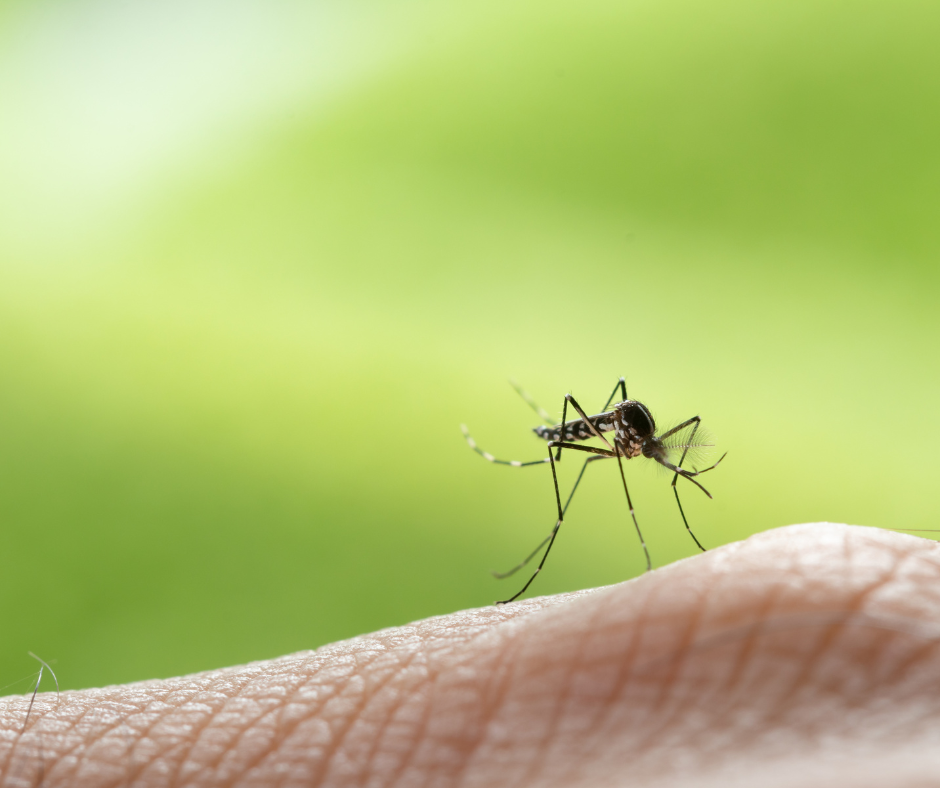
What to Know About Homeopathic Remedies for Insect Bites
What is Homeopathy for Insect Bites?
Homeopathy is a natural form of medicine that uses highly diluted substances to trigger the body’s healing processes. For insect bites and stings, homeopathic remedies can provide effective relief from symptoms like swelling, itching, and pain.
Why Use Homeopathic Medicine for Insect Bites?
Homeopathic medicines offer a natural alternative to conventional treatments for insect bites and stings. They:
- Alleviate discomfort without harsh chemicals
- Can be used by those who prefer natural treatment options
- Are suitable for various types of insect bites and stings, including those from mosquitoes, bees, and spiders
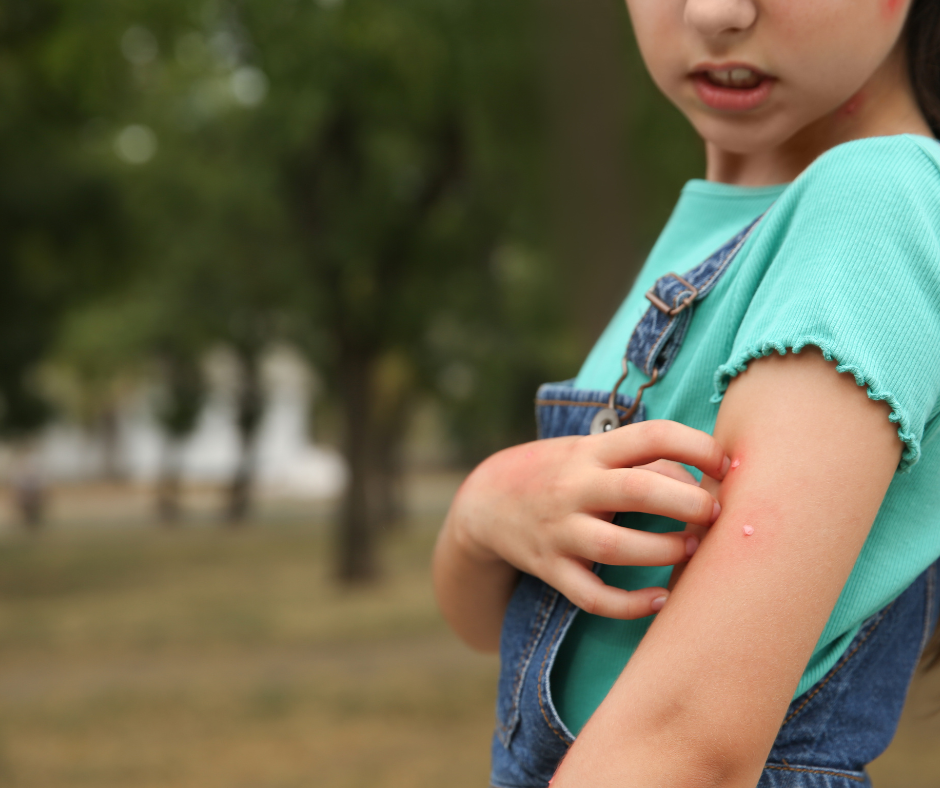
Which Homeopathic Remedies are Good for Insect Bites?
Primary Homeopathic Remedies
- Apis mellifica: Made from the honey bee, this remedy is made stinging edemas from stings or allergies*. It’s especially effective when the affected area is relieved by cold applications. It is particularly useful for insect stings and bites that are sensitive to touch.
- Ledum palustre: Puncture wounds - sting & bites - black eyes.*
- Urtica urens: Useful for Skin complaints such as itchy rash, burns, insect bites.*

Dosage and Administration
When using homeopathic medicines, it is crucial to select the remedy that most closely matches the symptoms. General guidelines include:
- Use lower potency (6X, 6C, 12X, 12C, 30X, or 30C) unless otherwise directed by a physician.
- Follow the instructions printed on the label.
- Take one dose and wait for a response. If improvement is seen, continue to wait and let the medicine work.
- The frequency of dosage varies with the condition and individual needs. Sometimes a dose is required several times an hour, other times several times a day, or once per day (or less).
- If no response is seen within a reasonable amount of time, select a different medicine.
Preventive Measures
Preventive measures are essential to avoid insect bites and stings. Here are some tips:
- Avoid provoking insects.
- Avoid perfumes, lotions, and scented soaps.
- Avoid known insect areas.
- Use insect repellents and protective clothing.
- Be cautious when eating outdoors, especially with sweet drinks or near garbage cans.
- Use window screens.
- Remove standing water to prevent mosquito breeding.
- Avoid being outside at dawn and dusk.
- Use citronella, linalool, and geraniol candles.
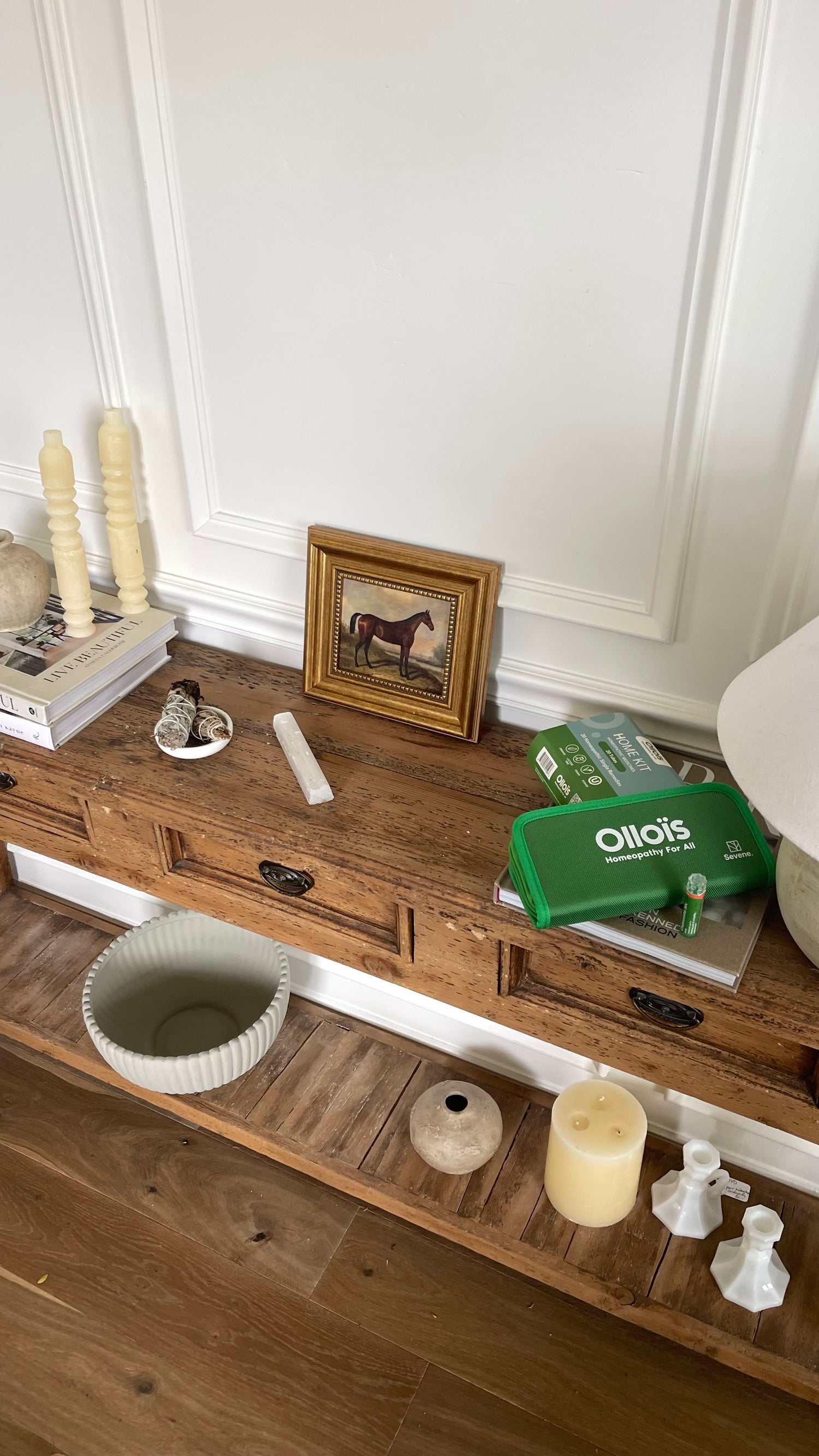
Emergency Preparedness
For those with known severe allergies to insect stings, carrying an emergency epinephrine kit (Epi-pen) is crucial. Additional steps include:
- Ensure friends and family know how to use an Epi-pen.
- Wear a medical ID bracelet.
- Consider venom immunotherapy to prevent sting anaphylaxis.
- For severe allergic reactions:
- Check airway, breathing, and pulse.
- Use Epi-pen if available.
- Keep the person calm.
- Remove constricting items in case of swelling.
- Stay with the person until help arrives.
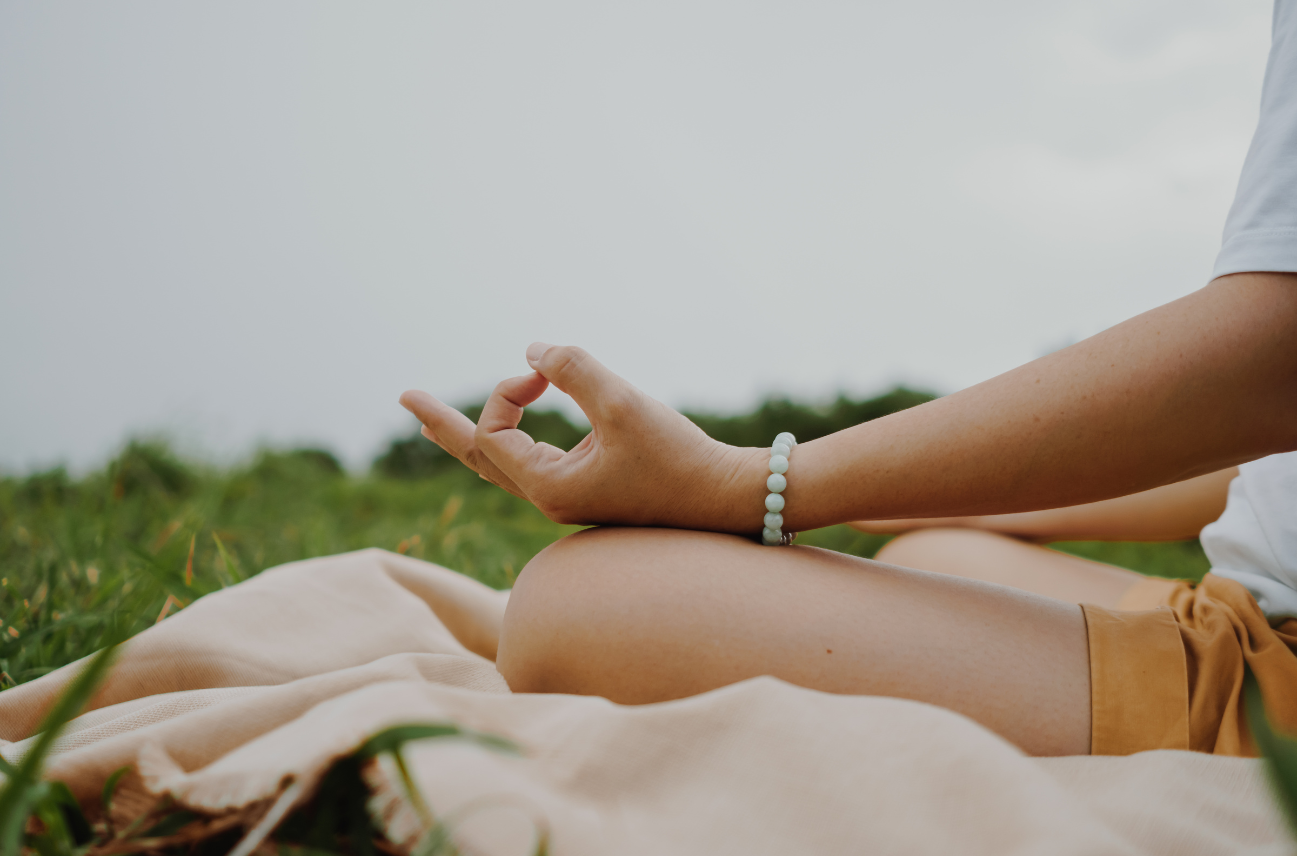
Who Should Consider Natural Treatment for Insect Bites?
Homeopathic treatments are ideal for:
- Individuals seeking natural alternatives to conventional medicine.
- Those who experience mild to moderate reactions to insect bites.
- People looking for preventive measures against insect bites.
Managing Symptoms at Home
Most symptoms like redness, minor swelling, pain, or itching typically resolve within 3 to 7 days. To relieve symptoms:
- Remove the stinger by scraping with a credit card.
- Wash the sting site with soap and water to avoid infection.
- Apply an ice pack or wet compress for 10 minutes to reduce itching and swelling.
- Take antihistamines or apply anti-itch creams (Calamine or Benadryl).
Consult with a Healthcare Practitioner
It's important to consult with a healthcare practitioner to ensure that homeopathic treatments complement your current health regimen.
Explore more about how our homeopathic remedies can help you find relief from insect bite symptoms and improve your overall well-being, helping you manage common reactions.
Our natural solutions can help you achieve relief and comfort effectively and safely.

 Respiratory
Respiratory
 Stress & Sleep
Stress & Sleep
